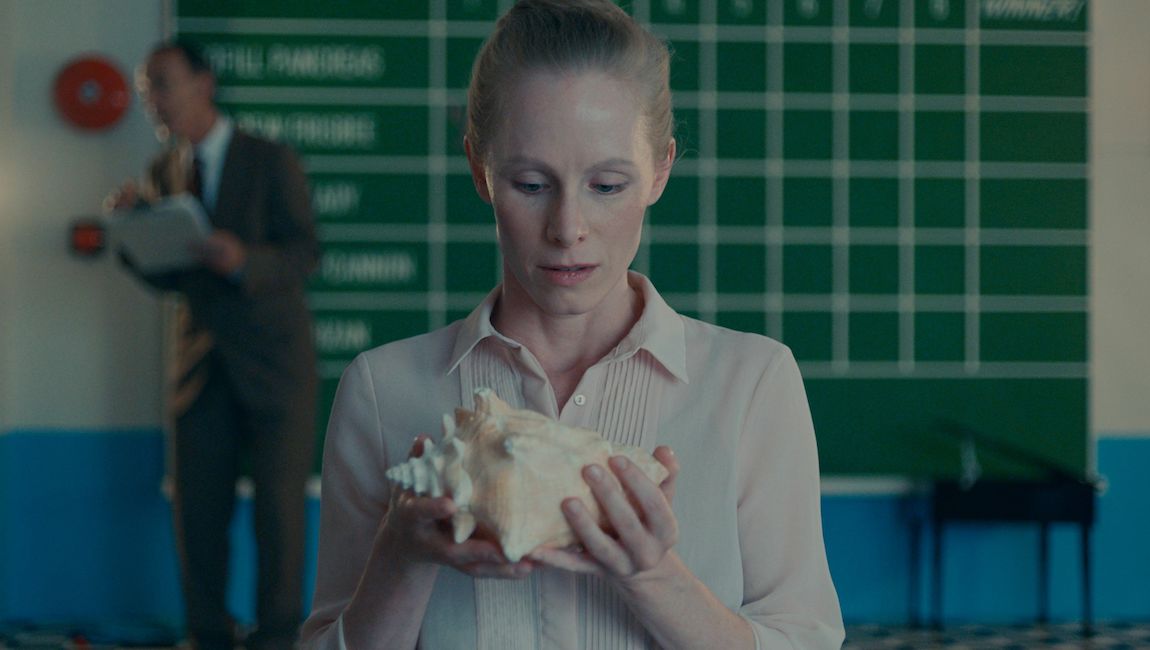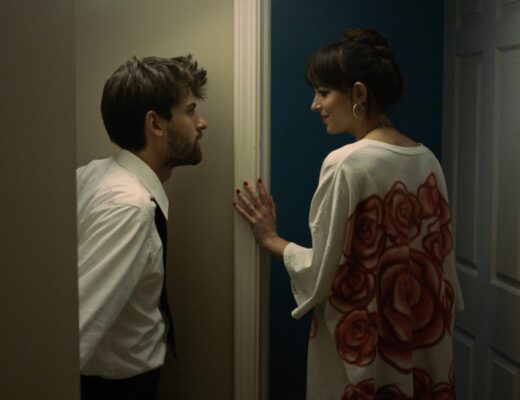Stanleyville is a toothless comedy that fails to fill in the considerable gaps in its conceptual framework.
Maxwell McCabe-Lokos’ Stanleyville confines itself to a single room, a kind-of auditorium space that would be found amongst your local long-term care facility. Barren, disheveled, and, ultimately, anonymous, the environment articulates rather bluntly the totality of the film itself. It’s this room, and the failed coloring of its geography, that submits to us an inadequacy: an utter lack of insight and intuition that abandons the cast of characters to an aimless whimsy. This whimsy follows Maria (Suzanne Wuest), a lowly office worker with little to no reason for living (at least, in the context of her current affairs). She, being intervened upon by a deus ex machina, is approached by a stranger who offers her placement in some undefined game — it’s prize a very mundane, polished SUV — and she sees this moment as a sign for the possibility of rejuvenation, an opportunity to totally reimagine her life and live truly and vigorously. Not long after, she finds herself stuck in this textureless room with four strangers, each vying for this monotonous reward.
McCabe-Lokos seems intent on fostering an obtuseness that cloaks the relationships and dynamics. This decision certainly crystallizes any dramaturgical friction into short humor, but it also simultaneously estranges us from the troupe. A capacity for emotional intellection is stunted and each player strays from wall to wall, corner to corner, without any discernible orchestration. We cut frequently between oners, stares glazing over as the image fixates on the coverage of each bit of action. If the editing wasn’t so imprecise, there might be an argument to make for an innate solipsism that comes to define not only the relationships, but the dramatic inertia of the whole work. However, the continuing failure to conceive of connective tissue between the elements engaged with (either through some development of narrative or via formal playfulness) ensures that the thematically derivative interests of the film on a whole — pedestrian existential angsts — amount to little more than nothing at all: no intrigue, no substantive queries, no real quandaries of any sort. We’re left with a vacuous representation of undefined space, with no particular way to even interpolate ideation in between the gaping cracks of logic and affect.
Originally published as part of Fantasia Fest 2021 — Dispatch 5.







